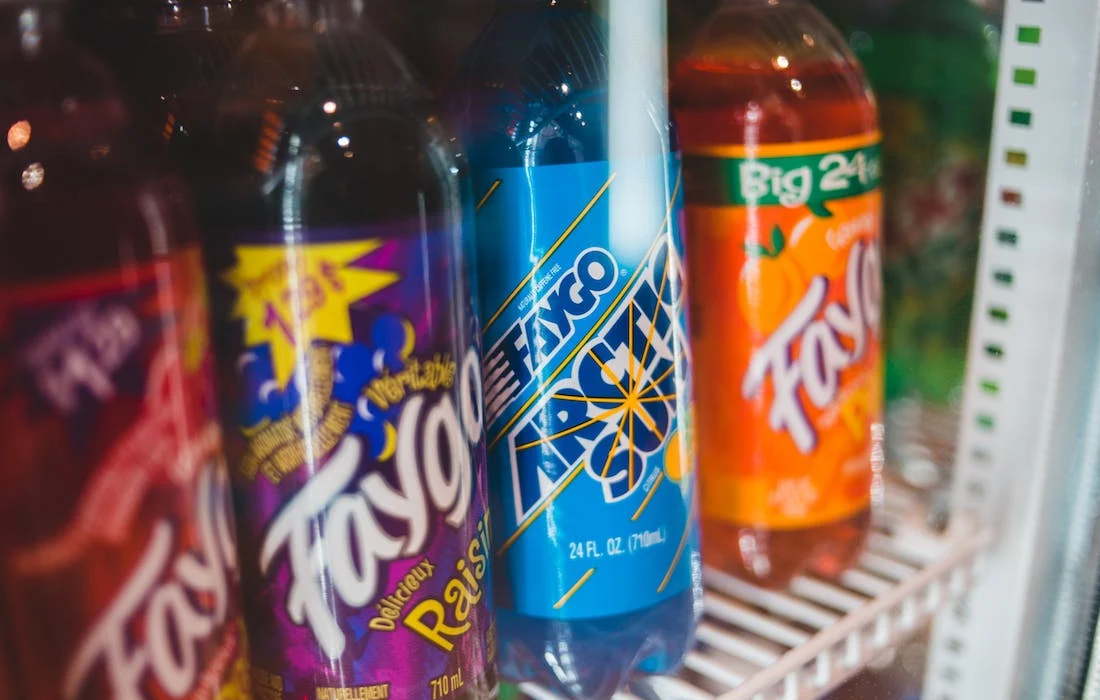Nutrition and Supplements
Sweetened Drinks Linked to Atrial Fibrillation Risk
Adults who reported drinking two liters (about 67 ounces) or more of sugar- or artificially sweetened drinks per week had a higher risk of an irregular heart rhythm known as atrial fibrillation compared with adults who drank fewer such beverages, according to new research published in Circulation: Arrhythmia and Electrophysiology, a peer-reviewed journal of the American Heart Association.
The study also found that drinking one liter (about 34 ounces) or less per week of pure, unsweetened juice, such as orange or vegetable juice, was associated with a lower risk of atrial fibrillation (AFib). However, the study could not confirm whether the sweetened drinks caused AFib, yet the association remained after accounting for a person’s genetic susceptibility to the condition.
Consuming sweetened drinks has been linked to Type 2 diabetes and obesity in previous research. This large study of health data in the UK Biobank is among the first to assess a possible link between sugar- or artificially sweetened beverages and AFib. Atrial fibrillation is a condition in which the heart beats irregularly, increasing the risk of stroke by five-fold. More than 12 million people are expected to have AFib by 2030, according to the American Heart Association’s 2024 Heart Disease and Stroke Statistics.
Researchers reviewed data from dietary questionnaires and genetic data for more than 200,000 adults free of AFib at the time they enrolled in the UK Biobank, between 2006 and 2010. During the nearly 10-year follow-up period, there were 9,362 cases of AFib among the study participants.
The analysis found:
- Compared to people who did not consume any sweetened drinks, there was a 20% increased risk of atrial fibrillation among people who said they drank more than 2 liters per week (about 67 ounces or more, or roughly one 12-ounce drink 6 days a week) of artificially sweetened beverages; and a 10% increased risk among participants who reported drinking 2 liters per week or more of sugar-sweetened beverages.
- People who said they drank 1 liter (about 34 ounces) or less of pure fruit juice each week had an 8% lower risk of atrial fibrillation.
- Participants who consumed more artificially sweetened beverages were more likely to be female, younger, have a higher body mass index and a higher prevalence of Type 2 diabetes.
- Participants who consumed more sugar-sweetened beverages were more likely to be male, younger, have a higher body mass index, a higher prevalence of heart disease and lower socioeconomic status.
- Those who drank sugar-sweetened beverages and pure juice were more likely to have a higher intake of total sugar than those who drank artificially sweetened drinks.
- Smoking may have also affected risk, with smokers who drank more than two liters per week of sugar-sweetened beverages having a 31% higher risk of AFib, whereas no significant increase risk was noted for former smokers or people who never smoked.
Researchers also evaluated whether a genetic susceptibility to AFib was a factor in the association with sweetened beverages. The analysis found the AFib risk was high with the consumption of more than 2 liters of artificially sweetened drinks per week regardless of genetic susceptibility.
The American Heart Association’s 2016 dietary guidelines align with the U.S.D.A.’s 2020-2025 Dietary Guidelines for Americans in suggesting sugar-sweetened beverage consumption be minimized; they also note there is unclear evidence of the role of no- and low-calorie sweeteners on many health outcomes.
The American Heart Association recommends limited intake of sugar-sweetened beverages, such as such as soft drinks, fruit drinks, sports drinks, energy drinks, sweetened teas and coffee drinks. Healthy beverage options noted are water and fat-free or low-fat milk, while unsweetened fresh, frozen or packaged fruit juice is recommended instead of fruit juice with added sugar. A half cup of pure juice (such as orange juice or grapefruit juice) is recognized as one fruit serving.
Sources:
Ying Sun, Bowei Yu, Yuefeng Yu, Bin Wang, Xiao Tan, Yingli Lu, Yu Wang, Kun Zhang, Ningjian Wang. Sweetened Beverages, Genetic Susceptibility, and Incident Atrial Fibrillation: A Prospective Cohort Study. Circulation: Arrhythmia and Electrophysiology, 2024; DOI: 10.1161/CIRCEP.123.012145
American Heart Association. (2024, March 5). Sweetened drinks linked to atrial fibrillation risk. ScienceDaily. Retrieved March 6, 2024 from www.sciencedaily.com/releases/2024/03/240305134303.htm
Photo by Erik Mclean from Pexels: https://www.pexels.com/photo/close-up-shot-of-beverages-in-a-chiller-6781378/

